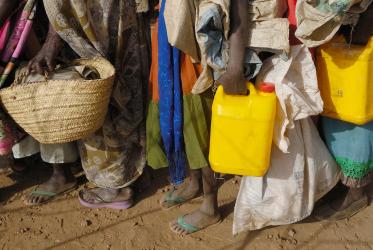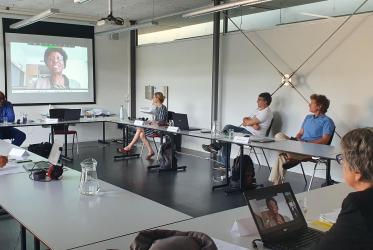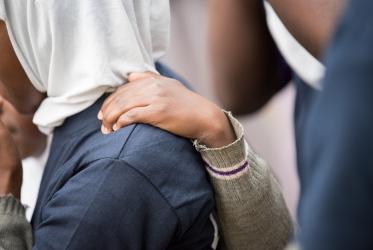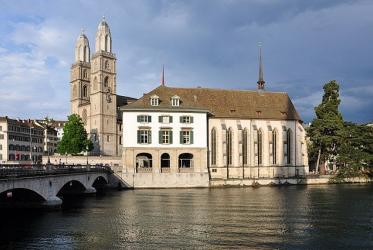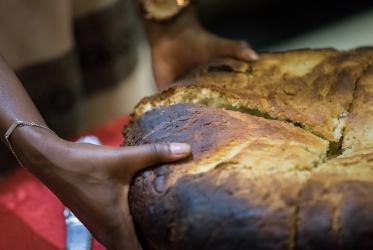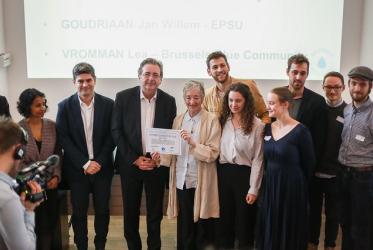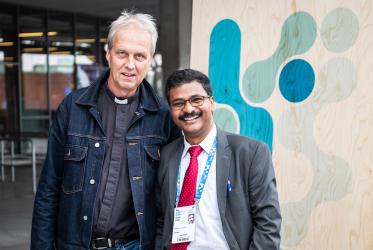Displaying 1 - 20 of 54
15 November 2023
2022 Social Forum: Water for human rights and sustainable development
03 - 04 November 2022
Palais des Nations in Geneva, Switzerland
Water as a divine gift, and justice issue
08 September 2022
Ukraine: Responding to humanitarian need
08 September 2022
WCC’s Ecumenical Water Network attends Pilgrim Team Visit
30 August 2022
Faith communities vital in overcoming hunger
18 March 2020
Plans for 11th WCC Assembly build excitement across the globe
18 February 2020
WCC joins gathering of Blue Communities in Brussels
06 December 2019
Patriarch Bartholomew, archbishop of Sweden sign joint editorial
30 September 2019
WCC President Wejryd: ‘Water, in many ways, represents God’
27 September 2019
Water and Faith showcase highlights results of collaboration
26 August 2019


